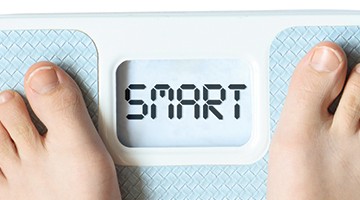New findings from the Department of Exercise Sciences can help you shape up.
Curb Your Appetite
A good workout doesn’t just burn calories. Exercise sciences professor James D. LeCheminant (BS ’99, MS ’01) and psychology professor Michael J. Larson (BS ’02) tracked the neural activity of 35 women when viewing images of food on exercise days and non-exercise days. Their study, published in Medicine & Science in Sports & Exercise, found that 45 minutes of moderate-to-vigorous exercise in the morning reduced a person’s response to pictures of food—and participants didn’t eat more on exercise days, questioning the idea that you “work up an appetite.” According to Larson, the relationship between exercise and food intake has been studied before, but this is among the first neurologic studies.
Ditch the Cycle
Yes, those extra pounds, unchecked, slow you down over time. In a study published in Obesity, exercise sciences professor Larry A. Tucker (BS ’78, MS ’79) found that weight gain leads to more inactivity—and more weight gain. Over the course of 20 months, Tucker tracked 254 women with accelerometers, which measure movement and intensity of activity. Over that time period, those who were obese had an 8-percent decrease in moderate-to-vigorous physical activity; the nonobese showed almost no change. “It’s not rocket science,” says Tucker—other studies have established that the overweight exercise less, generally. But Tucker showed that obesity leads to less and less activity over time.
Set Your Alarm
When it comes to going to bed and waking up, creatures of habit have lower body fat. In research published in the American Journal of Health Promotion and picked up by Forbes, exercise sciences professor Bruce W. Bailey Jr. (BS ’99, MS ’01) found that women who woke up at the same time every day generally had lower body fat than those whose sleep patterns varied. The study also linked getting fewer than 6.5 hours or more than 8.5 hours of sleep per night to higher body fat. Those who slept 8 to 8.5 hours per night had the lowest body fat. “We have these internal clocks, and throwing them off and not allowing them to get into a pattern does have an impact on our physiology,” says Bailey.
—Jessica Jarman Reschke (’14)










